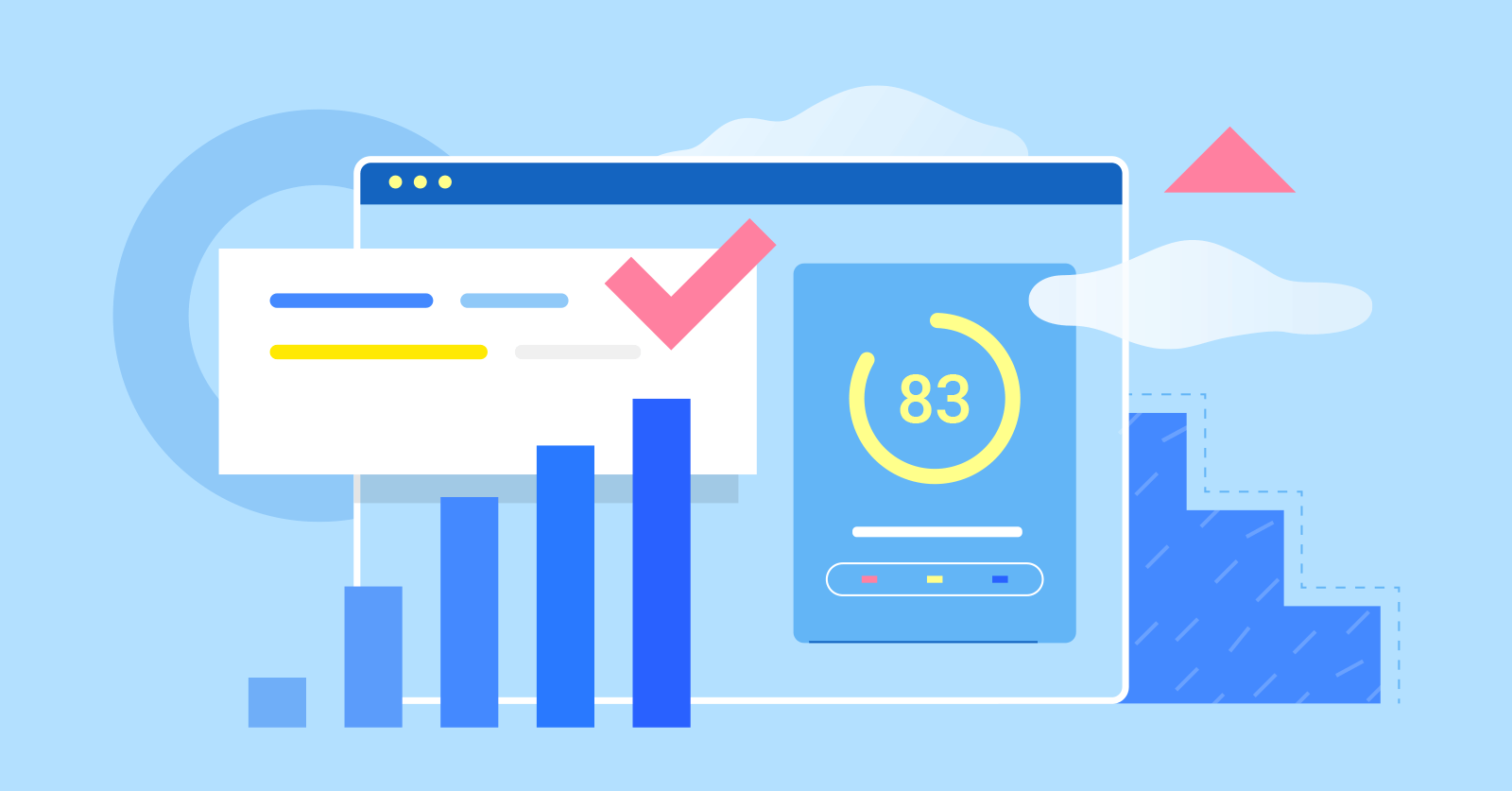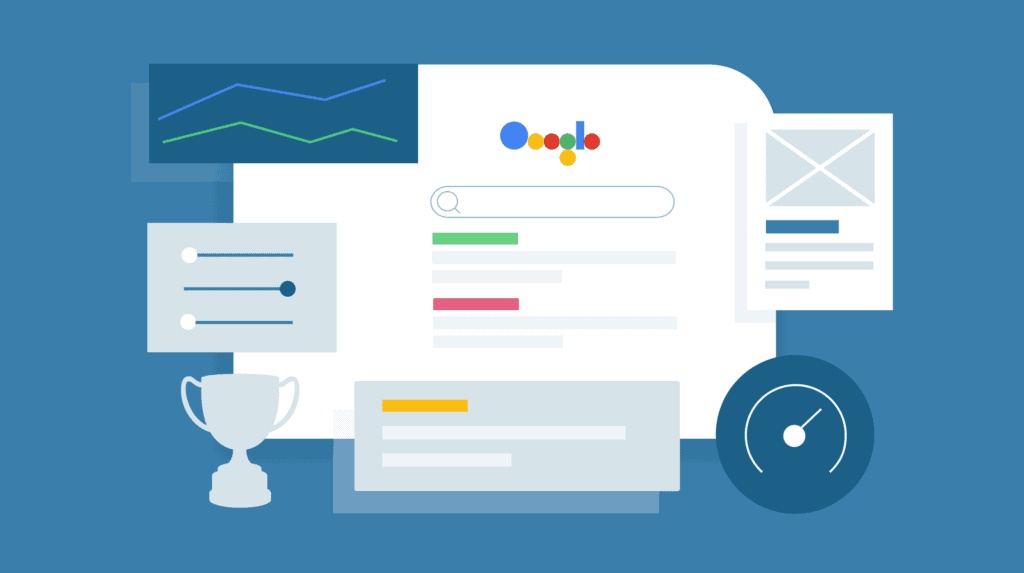Hi there! You’ve probably heard it a million times: page speed is crucial for SEO. The gurus and experts all scream it from the rooftops – if your site loads slowly, Google will bury you. But is it all just a bunch of hot air?
Well, get ready, because we’re about to dive into an experiment that challenges everything you thought you knew about page speed and its impact on Google rankings. Buckle up, because the results might just shock you.
The Page Speed Hype Train: Is it Real or Just a Scam?
For years, the SEO world has been obsessed with page speed. It’s become a cornerstone of SEO best practices, and for good reason, many believe. Google itself has emphasized the importance of a fast loading website, even rolling out updates that supposedly penalize slow sites, especially on mobile. There’s even research suggesting a correlation between loading speed and higher rankings.
But what if this widely accepted truth isn’t as solid as we think? What if we’ve all been chasing a ghost? This is exactly what I wanted to know, so I decided to put it to the ultimate test.
My Shocking Discovery: Even Top Ranking Pages are SLOW?!
I began to question the page speed dogma when I noticed something strange: many of my own pages ranking at the top of Google for competitive keywords had shockingly poor page speed scores. For example, one page ranking in the top 3 for “SEO checklist” had a measly 18/100 on Google PageSpeed Insights. This got me thinking, is page speed a major factor, or just a minor detail that doesn’t really matter? I was determined to find out if page speed is a make-or-break ranking factor.

The Experiment: A Page Speed Transformation
I decided to take one of my pages and improve its loading speed, and then monitor the changes in rankings and organic traffic. I picked a list post about “SEO tips”. This page was perfect because it was already on the first page of Google results, ranking at number eight. Also, the page was getting around 150 organic visitors per week. These were my baseline metrics.
And boy, was that page slow. Google PageSpeed Insights gave it a 28/100 on desktop and a dismal 13/100 on mobile. WebPageTest.org reported that the page took a whopping 40 seconds to load.
So, we did what anyone obsessed with SEO would do – we got to work!
Under the Hood: What Was Making My Page Load at a Snail’s Pace?
Initially, the page’s slow loading speed was puzzling. I already used an optimized WordPress theme, compressed images, and had a CDN. As it turns out, the main culprit was massive high-resolution images. The total file size of the page was a staggering 25 megabytes, bigger than classic video games! A study of five million webpages also confirmed that larger pages load much slower than smaller pages. So it didn’t matter how much we optimized other aspects, a big page is a slow page.
Extreme Makeover: Page Speed Edition
To test page speed’s true impact, we had to go extreme. We needed to transform the page from a slowpoke to a lightning-fast speedster. To achieve this, my CTO, Lloyd, created a stripped-down version of the page. We removed all the high-res images which helped somewhat but we still needed to do more.
Here’s what we did to achieve peak performance:
- Removed all massive images.
- Stripped down the page to the bare essentials.
- Even went as far as to remove the reply feature from the comment section
The result? A page that was as stripped down as a race car, ready for ultimate speed.

The Results: Prepare to Be Amazed…or Disappointed
After all the changes, the Google PageSpeed score soared from 28 to a perfect 100 on desktop. WebPageTest.org reported that the page now loaded in 1.68 seconds, a 40x improvement! The content of the page itself (title tag, keywords, etc.) remained exactly the same. We then used Google Search Console to index the new page and waited.
We waited two weeks to give Google time to adjust to the speed changes and to measure any changes in user experience signals.
And now for the big reveal. The ranking of the page was… exactly the same, number eight! Organic traffic remained largely unchanged as well; the slow page had brought in 305 organic visitors in the two weeks before the experiment, and the fast page had brought in 311 visitors in the two weeks that it was live. The traffic was essentially the same.
To make things more interesting, the bounce rate on the fast page was actually 48.84% worse. However, the average session duration and page views per session were higher on the faster page, which suggests that people were engaging with the site longer when they landed on a faster page.
The SHOCKING Truth: Page Speed May Not Be the SEO Magic Bullet We Thought
Given the lack of positive impact, we rolled back to the old, slow version of the page. It’s hard to draw any firm conclusions from a single experiment on one page but it certainly casts doubt on the conventional wisdom.
My target keyword, “SEO tips”, is highly competitive, so it’s possible that the boost from the speed improvement wasn’t enough to increase rankings. There are many authority sites outranking my page for this keyword. Also, optimizing for just one ranking factor might not be enough to push a page to the top. It’s also possible that if I had performed this experiment on a page targeting a low-competition keyword the results would have been different.
However, if page speed was as important as many SEO experts say it is, I would have expected to see some positive movement in the rankings, especially with such a dramatic improvement in page load time.

Conclusion
This experiment suggests that page speed might not be the SEO magic bullet that many make it out to be. At least for competitive keywords, improving page speed may not significantly impact your Google rankings.
So, what should you do? Should you ignore page speed altogether? Not necessarily.
A fast website is always better for user experience. The study also revealed that users tend to engage more with faster loading websites. However, obsessing over tiny speed tweaks might not be the best use of your time if you are hoping to significantly impact SEO. It’s clear that the factors that Google uses for rankings are complex, and that optimizing for one factor alone might not be enough for big ranking improvements, especially for competitive keywords.
Focus on creating high-quality content that truly helps your audience, and build your website to provide the best possible experience to your users.
FAQs
Does this mean page speed doesn’t matter for SEO at all? Not exactly. While this experiment showed little impact on rankings for a competitive keyword, page speed still plays a role in user experience. Google cares about user experience, so it is still important to have your website load at a reasonable speed. The experiment also showed that users tend to interact more with faster pages, so if you want your users to stay longer on your website, optimizing page speed is still beneficial. However, you may need to focus on other factors to improve your rankings.
Should I stop trying to optimize my website’s loading speed? Absolutely not. While this experiment questioned the direct impact of page speed on rankings, a faster site is generally a better user experience. A faster loading speed can also lead to better user engagement (longer session duration, more page views per session). The key is to have a balanced approach: don’t obsess over minor speed tweaks, but make sure your site isn’t unnecessarily slow. It’s important to focus on other factors that Google takes into account as well when trying to improve your rankings, such as quality content.
Is the experiment’s findings true for all keywords? This is a key point and it’s important to be nuanced here. The experiment was done on a page targeting a competitive keyword. There might be different results if the experiment was done on a page targeting a low competition keyword. Also, it is difficult to draw firm conclusions from a single experiment. So the results of this experiment may not be true for all keywords and all situations. There is always more testing to be done.

